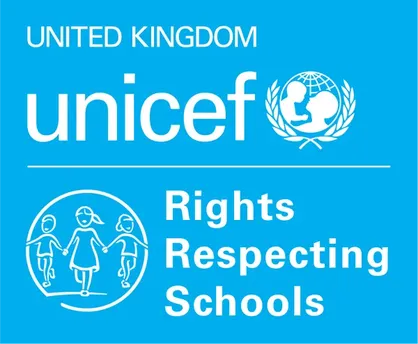Through work on sustainability children at Christ Church Primary know they can all act and make a difference.
Christ Church Primary is a RRSA Gold primary school in Hampstead, London. RRSA Coordinator Kathryn Pagnello shares their work on sustainability.
Taking action towards the Global Goals
Each year children produce a piece of art linked to a common theme. Last year we chose the UN Sustainable Development Goals. Linked to this children also took actions towards the Global Goals they focused on for the art project and learned that each action, whether small or big, can make a difference.
For example, Year 4 – who had learned about Global Goal 13: climate action – wrote to the local MP about the importance of taking climate action and ensuring the government took these issues seriously; Year 6 – who had learned about Global Goal 4: quality education – ran businesses as part of their end of year activities and raised money to buy a number of UNICEF’s ‘school in a box’ resource; and Year 3 – who had learned about Goal 15: life on land – thought about ways to keep our local environment clean and safe, they created posters which were displayed in the local area and took part in a litter pick on Hampstead Heath.
The impact for children of sustainability work
Children get a feeling of empowerment through learning that we can all act and that each action can make a difference. Children at Christ Church know that raising money is one way to make a difference. They also know they have the power to make a difference themselves in the community and the wider world through actions such as creating bunting that was displayed in the local area, learning about UN peacekeepers and thinking about how they can become peace keepers or peace makers themselves in Reception; and taking part in initiatives like litter picks and other activities linked to local charities and initiatives. Our work on sustainability has encouraged children to see themselves as global citizens and talk about what they have learned with their parents and other members of their families. They know that they can spread the word about the Global Goals and they do so confidently.
The benefits and challenges of work on sustainability
Work on sustainability supports our work on Strand C: Teacher and Learning For Rights. It gives children an opportunity to promote children’s rights while learning about sustainability issues. By learning about sustainability, children are more likely to become advocates for change, pushing for policies and practices that lead to a more sustainable world with a good understanding of how this benefits children’s rights.
Sometimes it can feel like a big task to plan actions that children will take. Our advice would be to remember that all actions, however big or small, are still actions. Reaching out to local charities or organisations in your local environment to collaborate on sustainability issues can also be helpful and supportive. Organising whole school events like arts projects can also seem daunting, however, each class having a key focus and then bringing these together creates impactful work.
School context: Christ Church Primary is a Church of England primary school in the heart of Hampstead with 192 pupils on roll. 3.6% of pupils are eligible for Pupil Premium funding, 9% receive support for Special Educational Needs or a Disability (SEND) and 55.2% speak English as an Additional Language. The school had been reaccredited at Gold six times.



